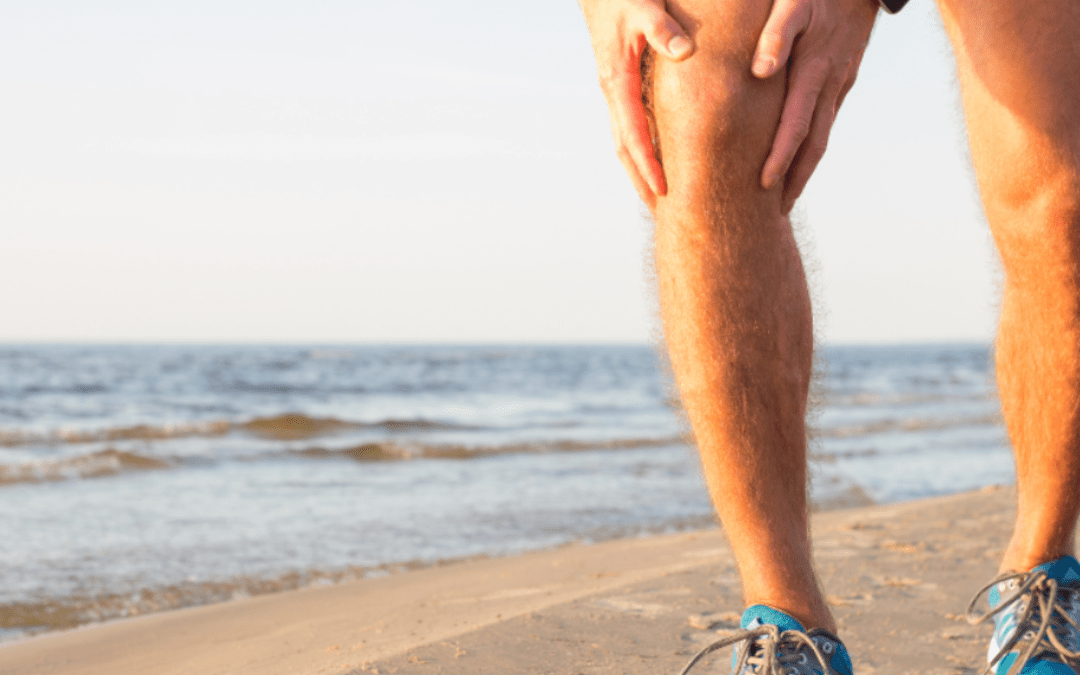Have you ever been sidelined by a knee injury that left you wondering if you’d ever regain your full athletic potential? A torn ACL (anterior cruciate ligament) is a common nightmare for athletes, causing excruciating pain, knee instability, and making it nearly impossible to bear weight. These injuries not only disrupt your training and performance, but for some, they can be career-threatening.
The good news is, there are innovative treatment options that can get you back on the field faster and stronger. One such option is Wharton’s Jelly Stem Cell Therapy, a groundbreaking procedure that harnesses the body’s natural healing power to promote regeneration and reduce pain.
Recognizing the Signs and Symptoms of an ACL Injury
The excruciating pain that follows an ACL tear is often accompanied by a distinct popping sound or sensation of the knee “giving way” during physical activity. This instability is a hallmark symptom of a damaged ACL, making it difficult to bear weight on the injured leg and significantly impacting your range of motion. You might also experience a rapid onset of swelling and bruising around the knee joint, further hindering your mobility.
These symptoms can be alarming, and early diagnosis is crucial for optimal recovery. If you suspect an ACL injury, seeking immediate medical attention from a qualified sports medicine specialist is essential. Through a comprehensive physical examination and diagnostic imaging techniques such as MRI scans, they can confirm the extent of the ligament damage and create a personalized treatment plan.
It’s important to understand that a timely diagnosis goes beyond simply identifying the injury. Early intervention allows for a more targeted approach to treatment, potentially preventing further complications like meniscus tears or cartilage damage. By addressing the ACL injury promptly, you can significantly improve your chances of a full and successful recovery, allowing you to return to your favorite activities with confidence.
Traditional Treatment Options for ACL Injuries
While the innovative approach of Wharton’s Jelly Stem Cell Therapy offers a promising alternative, traditional treatment options for ACL injuries still hold a place in the recovery journey. Here’s a breakdown of the two most common methods:
Surgical Reconstruction (Arthroscopy): This minimally invasive procedure involves repairing or replacing the torn ACL using a graft, typically harvested from another part of the knee. Arthroscopy offers the advantage of directly addressing the ligament tear and restoring stability. However, it’s not without limitations. Recovery times can be lengthy, often stretching into several months, and physical therapy plays a crucial role in regaining strength and mobility post-surgery. Additionally, surgical procedures carry inherent risks like infection, bleeding, and stiffness in the joint.
Physical Therapy: This non-surgical approach focuses on strengthening the muscles around the knee joint to improve stability and function. Rehabilitation exercises typically involve quadriceps strengthening, hamstring curls, and balance training.
Ultimately, the decision between surgical reconstruction and physical therapy depends on the severity of the ACL tear, your individual needs, and activity level.
How Wharton’s Jelly Stem Cell Therapy Can Help
Avid Sports Medicine in San Francisco recognizes the limitations of traditional treatment methods and is proud to offer a groundbreaking alternative, Wharton’s Jelly Stem Cell Therapy. This innovative procedure utilizes mesenchymal stem cells derived from a rich source found within umbilical cord tissue, known as Wharton’s Jelly. These stem cells possess remarkable regenerative properties, having the unique ability to transform into various types of cells within the body.
For ACL injuries, Wharton’s Jelly Stem Cell Therapy offers a minimally invasive approach that promotes healing and regeneration of the damaged ligament. The stem cells are injected directly into the injured area, where they work their magic by:
- Reducing inflammation: Stem cells have potent immunomodulatory effects, helping to calm the inflammatory response that contributes to pain and swelling.
- Enhancing tissue repair: By stimulating the growth of new healthy tissue, stem cells can bridge the gap created by the torn ligament and facilitate its natural healing process.
- Promoting blood vessel formation: Stem cells encourage the development of new blood vessels, which improves blood flow to the injured area, delivering essential nutrients for healing.
The result? Wharton’s Jelly Stem Cell Therapy offers a promising alternative for ACL injury treatment, potentially leading to:
- Reduced pain and inflammation
- Faster healing and recovery time
- Improved joint function and mobility
- Decreased risk of long-term complications
While further research is ongoing to definitively establish its efficacy, Wharton’s Jelly Stem Cell Therapy represents a significant advancement in sports medicine, offering a potential path to a faster and more complete recovery for athletes in San Francisco facing ACL injuries.
Regain Control of Your Game: Schedule a Consultation at Avid Sports Medicine Today
Living with an ACL injury in San Francisco can be incredibly frustrating, sidelining you from the activities you love. Fortunately, there is hope. Avid Sports Medicine, a leading sports medicine clinic located in the heart of San Francisco, offers advanced treatment options to get you back on track.
We understand the unique needs of athletes and the importance of a swift recovery. Our team of experienced healthcare professionals can help you explore all your treatment options, including cutting-edge Wharton’s Jelly Stem Cell Therapy. This innovative procedure harnesses the body’s natural healing potential to promote regeneration, reduce pain, and improve joint function.
Don’t let an ACL injury sideline you any longer. Schedule a consultation with Avid Sports Medicine today and take the first step towards a full recovery. Our dedicated team is here to answer your questions and develop a personalized treatment plan that gets you back to the sports you love. Contact us today to learn more about stem cell therapy.

